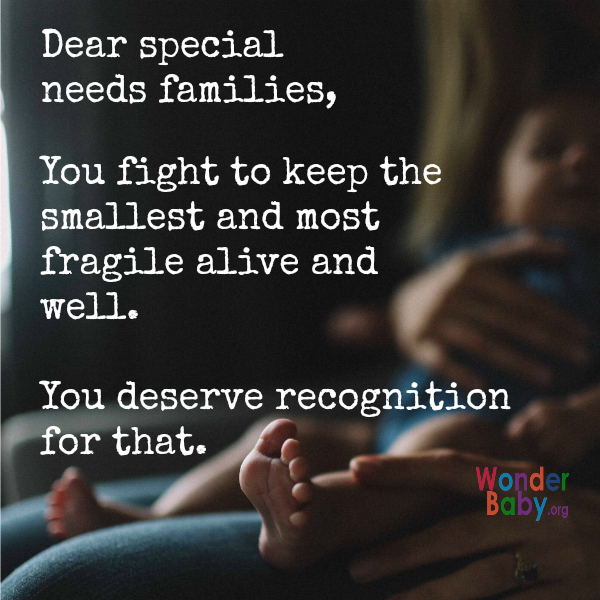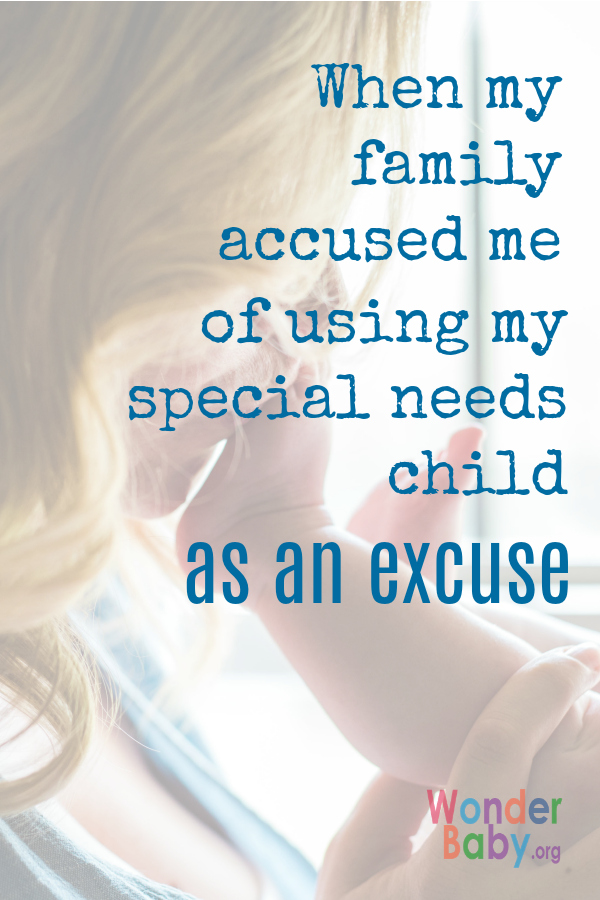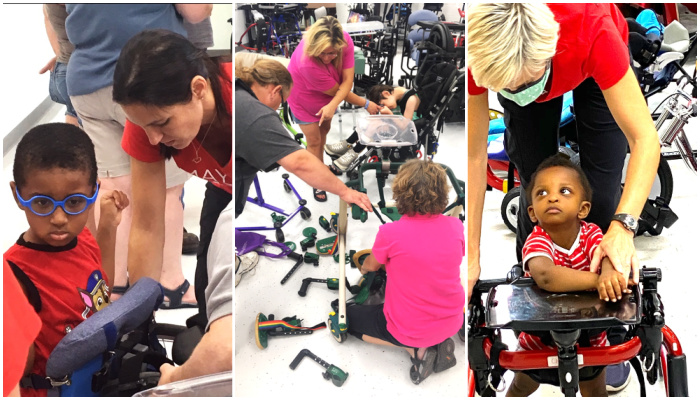When my family accused me of using my special needs child as an excuse

It was a simple “no,” we would not be able to attend a family wedding.
We told our immediate (but not extended) family our reasons for not being able to attend. Those reasons include (but are not limited to):
- Hotel air and cleanliness not being the safest for our medically fragile child to breathe
- RSVP was, and rightfully so, two and half months before the wedding, too far in advance for our family to commit to going with all the unknowns we face
- Our child has severe obstructed breathing at night
- Our child has frequent vomiting throughout the night
- Not having a babysitter we would be comfortable with given the vomiting and difficulty breathing
- The difficulty of packing all the equipment for our child
Our family knows our struggles, they have cheered with us, sat in the hospital with us, and supported us. This wasn’t an easy decision for us, but considering our current circumstances, there really weren’t any other options.
Our “no” was accepted, but not respected. I had several exchanges with our extended family, some calm, some with me yelling, all filled with the same questions:
“Explain to me again why you can’t go?”
“Why can’t just you go?”
“Why can’t you just take the other kids (90 minutes away) for the ceremony and go home?”
I kept firmly restating our reasons. Their responses included:
“It seems like you don’t care about family.”
“You’re using your child as an excuse.”
“I forgive you for not going to the wedding.”
I was and am heartbroken. The people who we thought “got” it the most, did not. Those closest to us, who have seen our struggles, do not accept that our life has different rules. They expect our non-typical family to live and adhere to typical family standards. I feel alone, sad and quite frankly angry.
I looked for some sort of article or post to help soothe me and pass along to the family. My usual safe spaces on Facebook came up empty… for that. But my safe spaces gave me echoes of:
“We deal with that too.”
“Do what’s best for your child and your family.”
“You know your child best.”
They helped, but I was still angry. Finally someone said “I am so sorry this is happening. You are making good decisions every day for your family. It’s unfortunate that they don’t see this. You have kept the smallest alive and well. Do they think that ‘just happened’?”

With that I felt empowered and vindicated. I found what I needed to be strong and not second guess our decision.
Parents in the fight I stand with you. Your child comes first. Others’ expectations do not matter.
- Others do not have the same frame of reference as we do. Prepping for a family day at the apple orchard for them means packing extra diapers, not packing a ventilator, tubing or a go bag.
- Others only see what they want to see. We have found ways to deal with our circumstances. Many extended family members can not or only choose to see parts of our lives, only the good, only the happy, only the milestones. Because they do not understand the worry, frequent hospitalizations, and aftermath of sensory explosions, they simply ignore them.
- Others do not appreciate that all our decisions are game-day decisions. Family members do not experience time as we do: for us anything can change in 1 hour, 1 day, 1 week, 1 month. In many cases, our decisions happen day of, based on what our child can tolerate, and only then if it is in the best interest of the NUCLEAR family.
- Others do not understand that our kids haven’t gotten to where they have by accident, every decision has been thoughtful, weighed against the possibility or inevitability of health emergencies or sensory meltdowns. Where our kids are, the highs and the lows, are the result of complex decisions we make with their best interest in mind and this is very different from how typical kids are parented (including my own).
Stand firm. My hope is that you can use the above points to make your case rather than doing what I did which was scream, “You don’t live my life!”

Related Posts

Special Needs
5 Spring Cleaning Tips for Families of Children with Disabilities
Spring cleaning is an opportunity to create a more accessible, organized, and supportive space for your child with disabilities. Declutter, deep clean, and refresh!

Visual Impairment
The Gift of Understanding: How a Young Child Helps His Blind Father Navigate Life
When a parent is blind, it’s natural for people to wonder how their sighted child will adapt. Will they struggle to understand their parent’s needs? Will they feel burdened by...

Assistive Technology, Support
May We Help: Engineering Independence for People with Disabilities
May We Help is dedicated to designing and building custom solutions that help individuals of all ages achieve mobility, access, and independence, all at no cost.